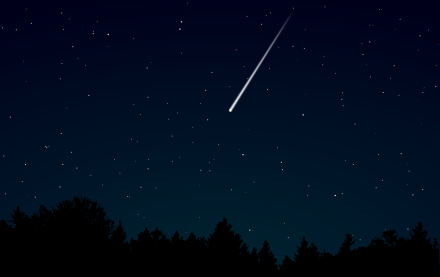On February 28th 2021 a bright fireball streaked across the night sky of the United Kingdom, depositing rocky fragments, known as meteorites, in Gloucestershire, England. After a member of the public came forward to report that some of this special space rock had landed on their property, an Open University scientist was quickly on the scene to collect the rare sample; the first UK meteorite in 30 years. The Open University has a long history of analysing rocks from space, whether they be from planets such as Mars, the Moon or asteroids and comets. Along with a team of scientists at organisations across the world, Open University scientists are involved with the analyses of the Winchcombe meteorite to find out where it came from and what it can tell us about the origin and history of the Solar System.
Transcript
22.0 KB
Image/ footage attribution and thanks to:
Video of fireball meteor CC BY-SA 4.0 from 28 February 2021 at 9:55PM: https://ukmeteornetwork.co.uk/
Meteorite in ice: © Katherine Joy / The University of Manchester https://ukantarcticmeteorites.wordpress.com/
Fireball trajectory: © Google Earth
Solar System schematic CC BY-SA 4.0: Universe Today
Asteroid collision animation: © NASA
Artist impression of Hayabusa2 CC BY-2.0: DLR German Aerospace Center on Flickr
OSIRIS-REx footage: © NASA/Goddard/University of Arizona
More academic insights on meteorites
-
Winchcombe Meteorite: Insights from the First Scientist on the Scene
Read now to access more details of Winchcombe Meteorite: Insights from the First Scientist on the SceneHere is the fascinating story of the events that led up to the recovery of the first UK meteorite in 30 years, with firsthand reports from Dr Richard Greenwood, the scientist who confirmed that the rocks found in the small town of Winchcombe originated in space.

-
From space to laboratory in four days
Read now to access more details of From space to laboratory in four daysHere Dr Natalie Starkey catches up with PhD student Ross Findlay about being the first person to make laboratory analyses of the Winchcombe meteorite.

-
How scientists found rare fireball meteorite pieces on a driveway – and what they could teach us
Read now to access more details of How scientists found rare fireball meteorite pieces on a driveway – and what they could teach usProfessor Monica Grady reveals how the Winchcombe meteorite was found and what it can teach us about the origins of life.

-
Your house is full of space dust – it reveals the solar system's story
Read now to access more details of Your house is full of space dust – it reveals the solar system's storyWhere does space dust come from? Dr Natalie Starkey explains in this article.

-
Hitching a ride on an asteroid to travel back to the birth of the Solar System
Read now to access more details of Hitching a ride on an asteroid to travel back to the birth of the Solar SystemRight now there are two active asteroid sample-return missions in space...

-
Can a space rock from Costa Rica reveal the origin of water on Earth?
Read now to access more details of Can a space rock from Costa Rica reveal the origin of water on Earth?Ross Findlay, a Cosmochemistry PhD Student in The School of Physical Sciences, explores different types of meteorites which have landed across our planet.

Take your learning further with these FREE resources
-
In the night sky: Orion
Learn more to access more details of In the night sky: OrionIn this free course, In the night sky: Orion, you will explore the night sky, discover how stars formed and find out about exoplanets, all through the constellation of Orion.

-
Galaxies, stars and planets
Learn more to access more details of Galaxies, stars and planetsThis free course, Galaxies, stars and planets, is a general introduction, including scale of the universe from the very large to the very small; orbits and gravity; the Solar System; the Sun and other stars; galaxies and the composition of astronomical objects.

-
An introduction to exoplanets
Learn more to access more details of An introduction to exoplanetsThis free course, An introduction to exoplanets, introduces our galaxy's population of planets, and some of their many surprises. It explains the methods used by astronomers to study exoplanets, and provides a general introduction to the methods of scientific inquiry. The course culminates in discussion of life elsewhere in our Galaxy.


Rate and Review
Rate this article
Review this article
Log into OpenLearn to leave reviews and join in the conversation.
Article reviews